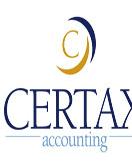Personal saving allowance helps banks and building societies will stop deducting tax from your account interest and it helps people to not be tax on their savings interest. If you fall in the basic tax band then you will be able to earn up to £1,000 with saving interest free and if you fall in the higher rate with paying tax then you will only get up to £500 tax free on saving interest. If you already receive interest without tax being taken off then you will no longer need to tell your bank or building society that you qualify for tax free interest.
You won’t have to pay any tax on your savings income if you do now make a total of £17,000 taxable income per year.
Depending on your income is how much tax-free allowance you would get. Here is a table to show you what category you fall in and what personal saving allowance you would get:
Tax Rate Income Band Personal Saving Allowance
Basic 20% Up to £43,000 Up to £1,000 in savings tax-free
Higher 40% £43,001 – £150,000 Up to £500 in saving tax-free
Additional 45% Over £150,000 No Personal Saving Allowance
What saving income include:
- Income from company bonds or the government
- Accounts which has providers such as National Savings and Investments or credit unions
- Most types of purchased life annuity payments
- Bank and building society accounts
- Interest distributions from authorised unit trusts (but not dividend distributions), open-ended investment companies and investment trusts
If you have an Individual savings Account (ISA’s) and gain interest from that then it won’t go towards your Personal Saving Allowance as the interest is already tax-free.
If you have a National Savings and Investments account (NS&I) or any Fixed Interest Savings Certificates and Index-linked Saving Certificates or any prizes won from Premium Bonds then these won’t go towards your Personal Savings Allowance as they are all already tax-free.
As normal, HMRC will collect the interest tax by changing your tax code. Building societies will give HMRC the information that they need to collect the tax.

